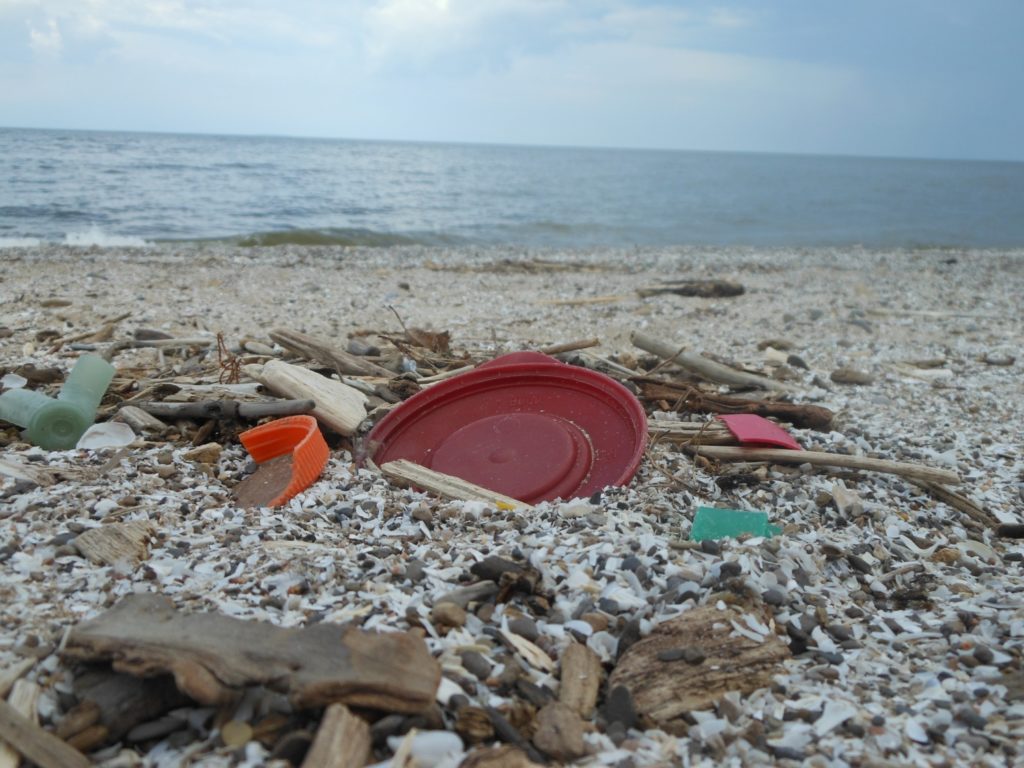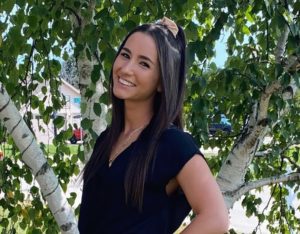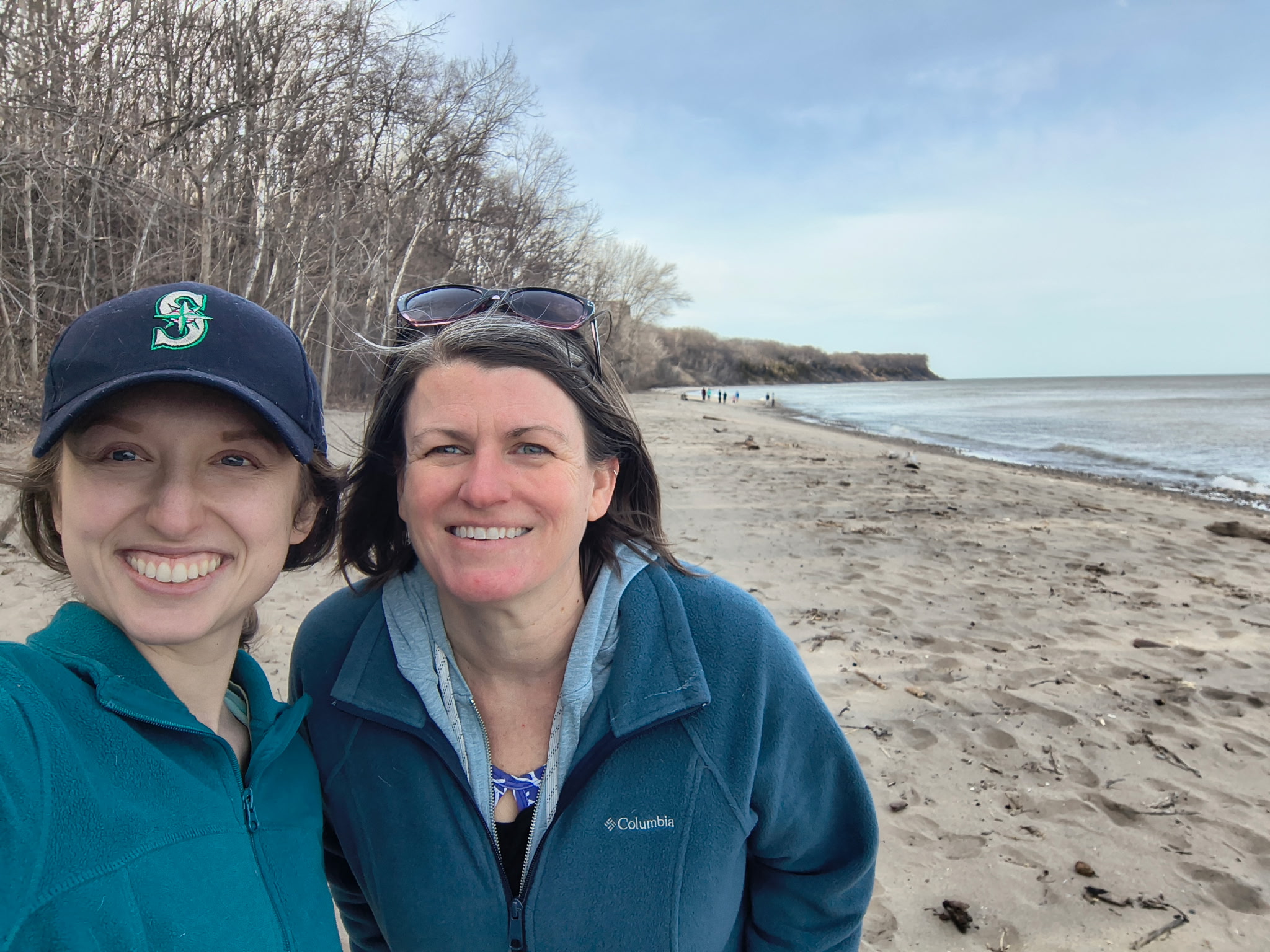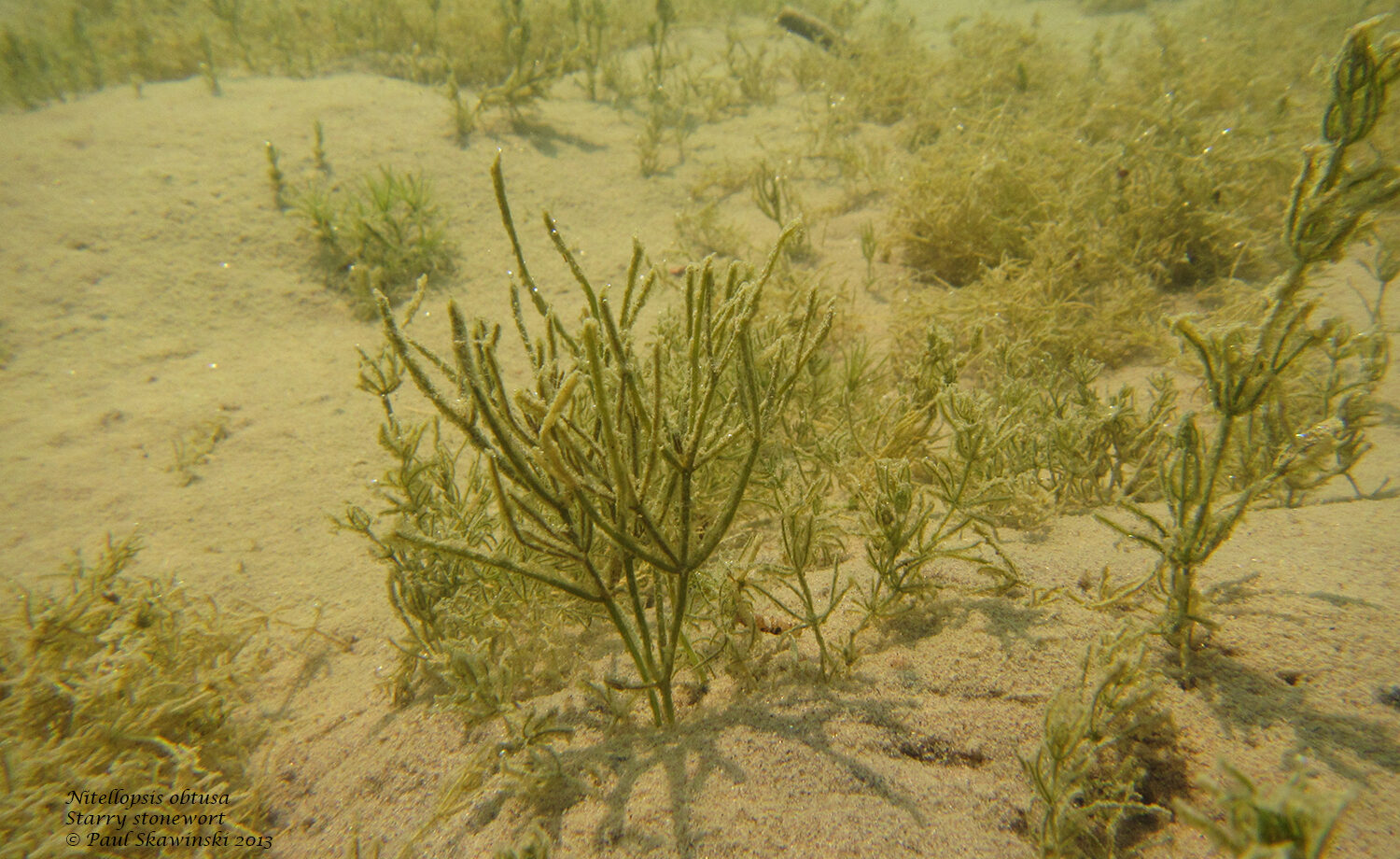
Plastic pollution at the Magee Marsh Wildlife Area on Lake Erie demonstrates the problem of marine debris in the Great Lakes. Image credit: NOAA
The statistics are daunting: 93% of water bottled in the Great Lakes region contains microplastics. 85% of trash found on Great Lakes beaches is plastic. 21.8 million pounds of plastics enter the Great Lakes each year.
Strolling through her Milwaukee community, Wisconsin Sea Grant’s Social Science Outreach Specialist Deidre Peroff said the plastic problem is obvious. “I live a five-minute walk from Lake Michigan. I’ve seen a lot of plastic trash out there and participated in some of the cleanups in the past or even on my own – just walking along, bringing a bag to put trash in.”
She worked with Leah Holloway from Milwaukee Riverkeeper, a science-based advocacy nonprofit, to develop a plastic project proposal since Peroff was aware of Riverkeeper’s involvement in a Milwaukee initiative to reduce plastics, called Plastic-Free MKE. The goal of the proposal is to reduce the amount of plastics that enter Lake Michigan. In 2020, the team was awarded two years of funding through the National Sea Grant-Marine Debris Special Projects Competition for “Plastic-Free MKE: Assessment and Education to Support Lake-Friendly Schools.”
Peroff described the project. “We came up with the idea to do education, focusing on a student-led, civic action project where students would do an audit of their schools or their classrooms and figure out how much plastic they are using, and then assess the inventory and figure out if it’s a problem or whether they are using more than they thought – and then come up with an action plan of how they could mitigate their impact on marine debris pollution.”

Belle Pappalardo is working with fifth-graders in Milwaukee to educate them about plastic pollution in the Great Lakes. Submitted photo.
The COVID-19 pandemic and distance learning for schoolchildren necessitated project modifications, turning the focus from the children’s classrooms to their own homes. To help, the team hired Belle Pappalardo, a professional master’s degree student at the University of Wisconsin-Milwaukee’s School of Freshwater Sciences. She is working with a fifth-grade class at the Clement J. Zablocki Community School in Milwaukee and their teacher, Diallo Tyler. Pappalardo researched existing marine debris toolkits, education programs and curricula. Now, she’s developing her own curriculum about the importance of fresh water and the issue of microplastics for the class, meeting with them every other Friday in a virtual session.
“The end goal is to do a plastic audit with them,” Pappalardo said. “They will do it at home. Then I’ll help them develop a student-led action plan to implement something for their school and develop a plastic pollution toolkit to take to teachers, the principal and their parents.”
Pappalardo graduates this May and hopes to find an outreach job where she can work with students and provide scientific information to the public.
Next year, Peroff hopes to hire another intern who will broaden the project’s scale and, COVID-willing, be able to work with the students for a longer time and in person.
“We’ve needed to be flexible and patient to get this project going because of many pandemic-related challenges, but we’re happy to be working with students now, even virtually. Because plastic is such a huge contributor to pollution in Wisconsin’s lakes and rivers, we figured anything we can do now to get children thinking about this issue will be a step in the right direction. The students seem to be enjoying learning about their watershed and how they can impact water quality,” Peroff said.





